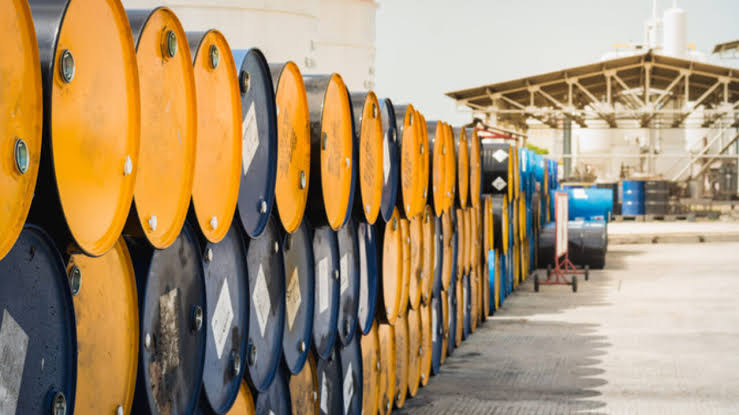*Unmasking the Maltese Cross of Corruption*
By Arnold Owie
A national scandal has unfolded with the revelation of substandard petroleum products being imported into Nigeria, linked to a shadowy oil blending plant in Malta. Leaked documents and interviews expose a complex web of corruption involving NNPC personnel, oil traders, and terminal operators. Matrix Energy, owned by Abdulkabir Adisa Aliu, a member of the Presidential Economic Coordination Council (PECC), is at the center of this scandal. The company has been importing low-grade petroleum products from Russia, blending them in Malta, and selling them in Nigeria.
Aliu’s actions demonstrate a disregard for the Nigerian people’s welfare. Matrix Energy’s logistical infrastructure suggests a deliberate attempt to undermine local refinery efforts, ensuring continued importation of inferior fuel products. The allegations against Aliu are severe, including securing preferential access to crude oil cargoes and trading them through a UAE-based entity.
The Malta saga is a damning indictment of the entire system, with Farouk Ahmed and Mele Kyari facing scrutiny for their alleged complicity. The NNPC’s failure to curb substandard fuel imports is a testament to its incompetence or complicity, betraying public trust and national pride.
The exposé’s severity is heightened by Russia’s expulsion from the SWIFT global banking network, making oil and gas dealings between Nigerian entities and Russian refineries illicit. Shipping data reveals a disturbing trend: 15,000 tons of petroleum products were transloaded onto the ‘Matrix Triumph’ vessel on June 16 and discharged at Matrix Jetty in Warri on June 21 without rectification, implying toxic diesel is being sold to unsuspecting Nigerian consumers.
The House of Representatives’ visit to the Dangote Refinery on July 20, 2024, confirmed Matrix Energy’s importation of subpar diesel. Diesel samples from Matrix filling stations had a sulphur content exceeding 2,653ppm, far surpassing the 50ppm requirement. Aliko Dangote presented findings from an exhaustive analysis of diesel samples, revealing alarming sulphur content levels. The testing, conducted at Dangote Refinery’s state-of-the-art laboratories, employed precise protocols to measure total sulfur content in petroleum products.
Dangote revealed that the diesel samples were purchased in the presence of lawmakers, ensuring transparency and accountability. The test results showed that his refinery’s diesel boasted an exemplary quality, with a sulfur content of 600-650 ppm initially, and a remarkable 87 ppm currently. In stark contrast, the samples from TotalEnergies and Matrix Retail exhibited alarmingly high sulfur concentrations of 1,829ppm and 2,653ppm, respectively.
These findings corroborate the disturbing fact that certain companies have been peddling diesel with sulfur levels exceeding 2,000 parts per million, indicative of off-spec, adulterated products sourced from Russian refineries and purportedly “corrected” at blending plants in Malta and Lome. However, instead of rectifying the subpar fuel, a large-scale adulteration scheme was perpetrated, thereby posing grave dangers to the lives of consumers.
A report by Stakeholder Democracy Network (SDN), a non-governmental not-for-profit organization, said it appears to be easy for sub-standard fuel imports to enter Nigeria. “So it is probable that large volumes of fuel consumed are of poor quality, causing significant damage to public health, engines, and the environment. “This contributes to air quality levels that cut life expectancy by 4.7 years in the Niger Delta, the worst hit area across the African continent,” SDN said in its report.
The diesel produced locally in Nigeria is of a significantly higher quality than the fuel blended in Malta. This fact alone underscores the criminal nature of this operation. By importing inferior fuel, these unscrupulous individuals are not only defrauding the Nigerian government but also endangering the lives of millions of Nigerians. The long-term damage to vehicles and other machinery caused by these substandard products is incalculable.
In contrast to the greed and avarice displayed by those involved in the Malta saga, the figure of Alhaji Aliko Dangote stands tall as a beacon of patriotism and entrepreneurial spirit. Dangote’s strong commitment to building a world-class refinery in Nigeria is a testament to his belief in the potential of his country. Despite facing numerous obstacles and setbacks, he has persevered in his efforts to create jobs and generate wealth for the Nigerian people. Dangote’s refinery represents a tangible solution to the perennial fuel crisis and a catalyst for economic growth.
It is no coincidence that those involved in the Malta saga are vehemently opposed to Dangote’s refinery project. Their business model relies on the continued importation of substandard fuel, a practice that would be rendered obsolete by the existence of a local refinery. The Maltese cross of corruption is a formidable obstacle, but Dangote’s determination, coupled with the support of the Nigerian people, can overcome it.
This despicable scandal necessitates a prompt and resolute response from the government, entailing a comprehensive and unbiased investigation to hold accountable those responsible for these reprehensible actions. A radical overhaul and restructuring of the NNPC is imperative to prevent the recurrence of such abuses of power and ensure transparency. Moreover, the government must foster a conducive environment, conducive to the growth and prosperity of local refineries, thereby safeguarding our economy from the pernicious influence of saboteurs and revitalizing our oil and gas sectors with utmost haste.
Consequently, Male Kyari must be forthwith stripped of his position, while Adisa Aliu must be subjected to a meticulous and thorough investigation regarding his involvement in these sham dealings. The Nigerian populace deserves a government firmly committed to their welfare, and a petroleum sector distinguished by transparency, efficiency, and accountability.
The laxity in regulating fuel quality poses a grave and formidable health risk to the citizens of Nigeria, underscoring the imperative for a government that prioritizes their well-being. The Malta saga serves as a stark reminder of the formidable challenges confronting Nigeria, yet simultaneously presents an opportunity for transformative change. By unmasking the entrenched corruption and collusion that has long plagued the oil and gas sector, this scandal can catalyze a paradigm shift, heralding a new era of reform and accountability.
The Maltese saga Is a dark chapter in Nigeria’s history, but it can also be a turning point. By exposing the corruption and greed that have plagued the oil and gas sector, this scandal offers an opportunity to build a better future. A future where the nation’s resources are used for the benefit of its people, not the enrichment of a few.
Only by taking these steps can Nigeria hope to break free from the stranglehold of corruption and build a brighter future for its citizens.
Owie is an oil and gas expert writing from the United Kingdom.

 Business6 months ago
Business6 months ago
 celebrity radar - gossips6 months ago
celebrity radar - gossips6 months ago
 Politics6 months ago
Politics6 months ago
 Entertainment4 months ago
Entertainment4 months ago











